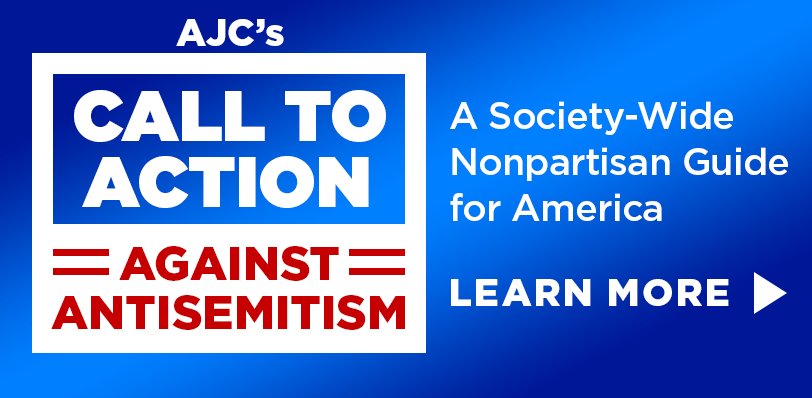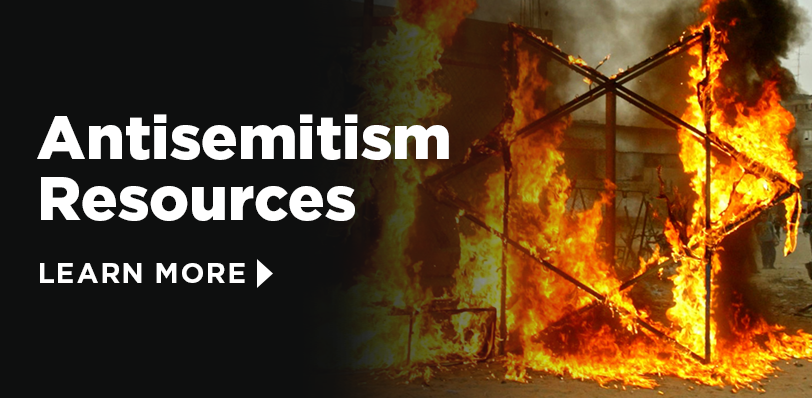How to prevent antisemitism
A condensed guide to prevent antisemitism from American Jewish Committee (AJC).
A condensed guide to prevent antisemitism from American Jewish Committee (AJC).
Preventing Antisemitism
Understanding and responding to antisemitism is necessary, but the ultimate goal must be to prevent it.

The following themes outline, in broad strokes, actions to help prevent antisemitism:
- Engage with the Jewish community | 34% of Americans do not know a Jew. Perhaps unsurprisingly, Americans who say they know someone Jewish are significantly more likely to view antisemitism as a problem, with 73% of U.S. adults who know someone who is Jewish saying so, compared with 59% of those who do not know anyone who is Jewish. If you live in an area that has a Jewish community, engaging with members of that community is a simple step that can be monumentally important not just for the Jewish community, but one that can then create inclusive, more secure, and resilient environments for all.
- Be prepared | A heightened awareness of the situations and times when antisemitism increases enable proactive planning to combat it. Antisemitism often rises during election cycles, around Jewish holidays, and during flare-ups in the Middle East. Community leaders, allies, and law enforcement should be on alert during these times and provide support to the Jewish community, as needed.
- Increase security and promote resilience | As long as Jewish communities are threatened by antisemitic violence, their security needs must be addressed. Combating antisemitism also must be seen in terms of Jewish community resilience, meaning that the Jewish community anticipates and responds to incidents, but more importantly withstands them and adapts purposely. This approach will ensure the Jewish community not only survives, but also thrives. It is about stability and structure as opposed to a continuous battle.
- Promote awareness and training | The importance of education in prevention cannot be overstated. Trainings—on Jews, the Holocaust, and antisemitism—provide an opportunity not only to show solidarity but to gain knowledge and tools to identify and respond to antisemitism. Programs to combat racism and intolerance provide an important framework, but they may downplay or ignore the problem of antisemitism. Because of its complexity, antisemitism should be addressed as a unique form of hatred. Finally, as misinformation spreads online and off, media literacy is increasingly important.
- Establish policies and create the right structures | Government, educational institutions, companies, and civil society can all craft policies and/or establish official structures to prevent and address antisemitic hate, prejudice, and conspiratorial thinking. Sustained action from all allies and partners is crucial.
We are all responsible for combating antisemitism.

